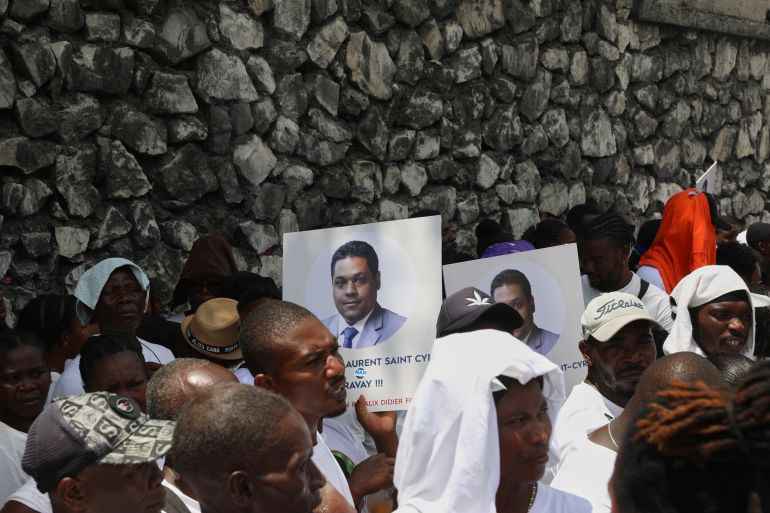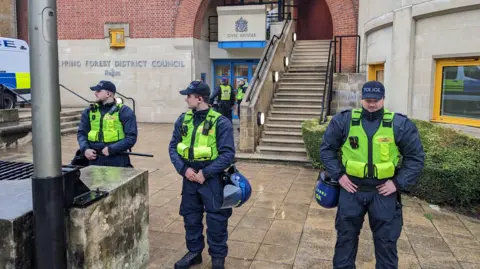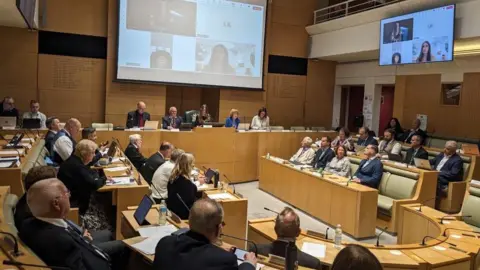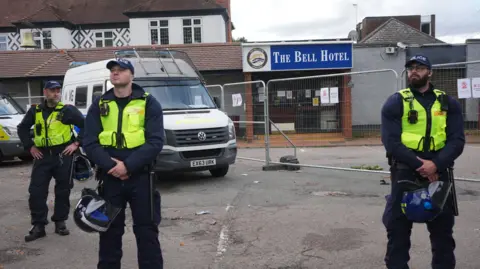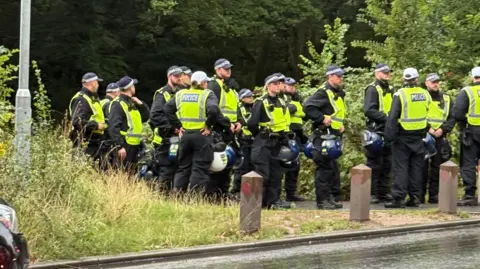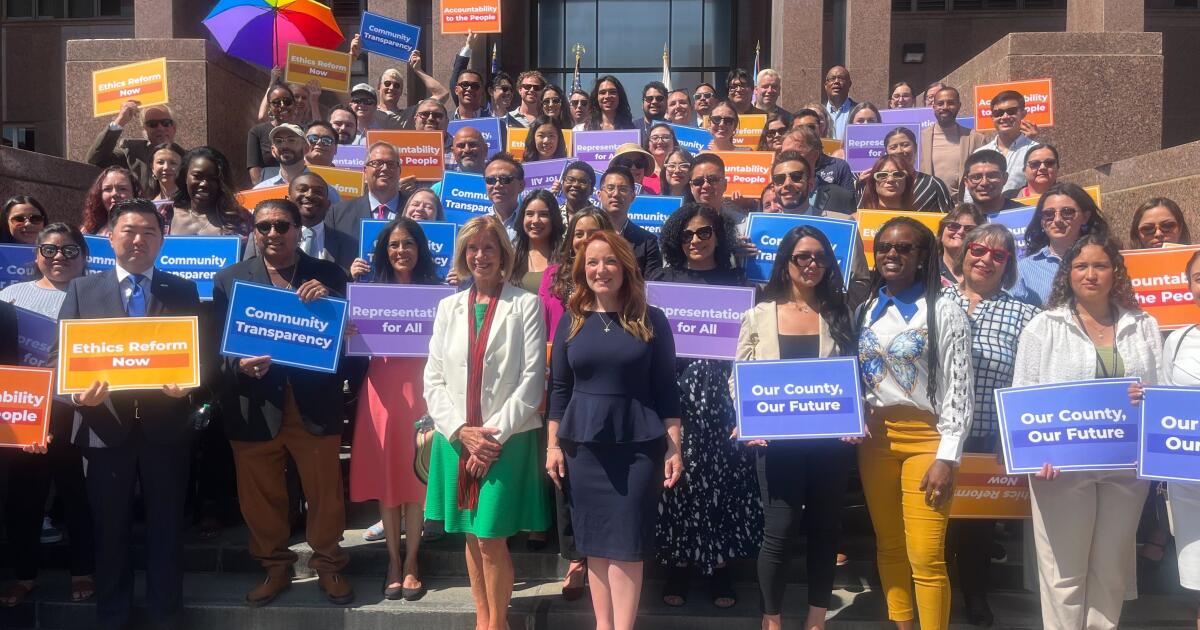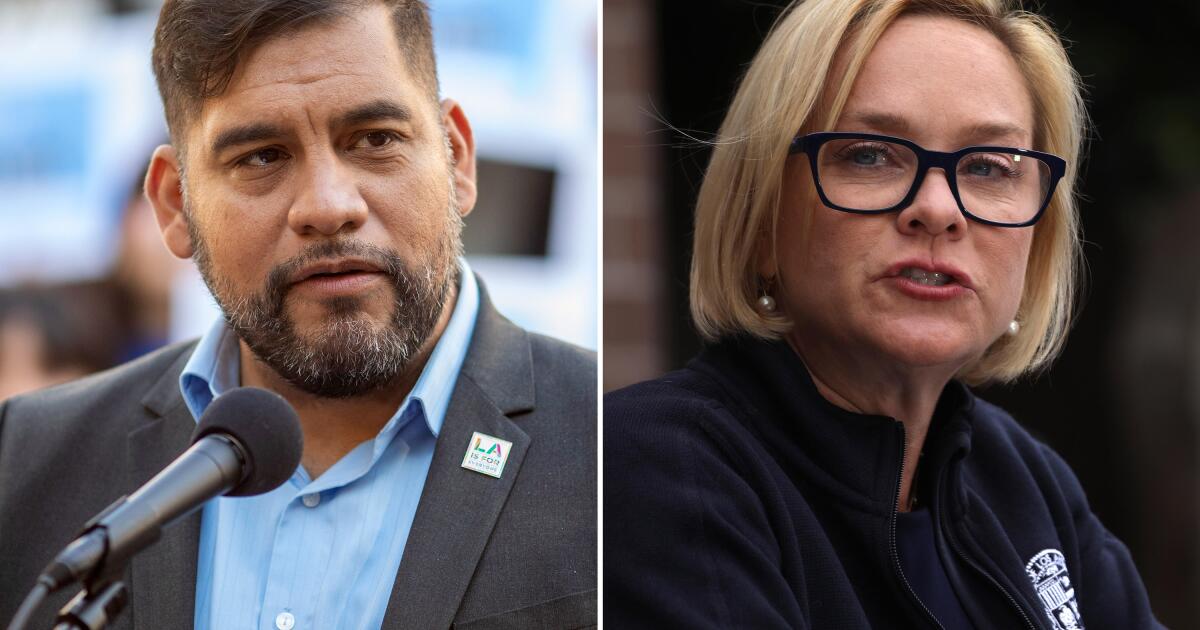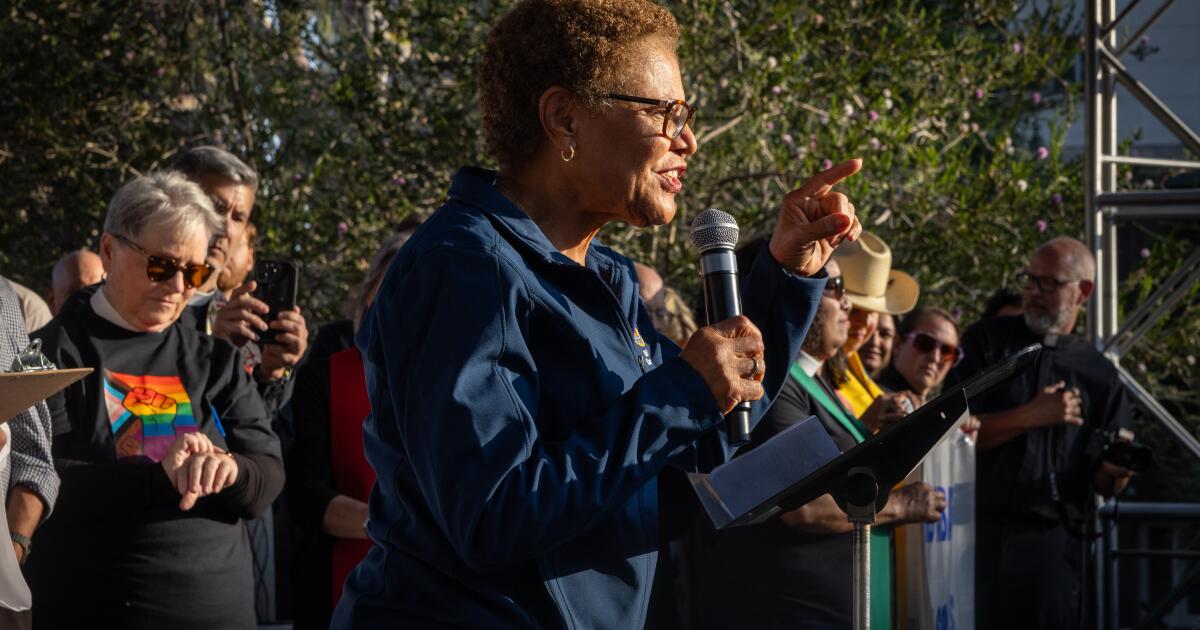City officials want to fund immigration defense. The budget crisis makes it hard
Good morning, and welcome to L.A. on the Record — our City Hall newsletter. It’s Noah Goldberg, with assists from Julia Wick, Seema Mehta and David Zahniser, giving you the latest on city and county government.
Days after the Trump administration’s mass immigration raids came to Los Angeles, City Councilmember Ysabel Jurado started looking for money to help the city’s undocumented residents.
In a June 10 motion, she asked City Administrative Officer Matt Szabo to detail options for finding at least $1 million for RepresentLA, which provides legal services for undocumented Angelenos facing deportation.
A week later, an official from Szabo’s office said they were “unable to identify eligible funding sources” for the $1 million, which would come on top of $1 million the city has already allocated to RepresentLA.
This summer in L.A., an immigration crisis is colliding with a budget crisis, leaving some councilmembers frustrated that the city cannot do more, as federal agents whisk thousands of immigrants away to detention centers and potential deportation.
The city has been active in court, joining an ACLU lawsuit that temporarily blocked federal agents from using racial profiling to carry out indiscriminate immigration arrests. Mayor Karen Bass also announced a program to provide immigrants with gift cards, funded by private philanthropy, when many were afraid to go to work.
But coming up with another $1 million for immigrant legal defense, after city officials closed a nearly $1-billion deficit through cuts and slated layoffs, has proved a slog.
“Why is it that we can’t find the money for this?” asked Councilmember Hugo Soto-Martínez during a Civil Rights, Equity, Immigration, Aging and Disability Committee meeting on Aug. 1. “It appears that level of urgency is not being transmitted through this report, because when we’re in other situations, we find the money.”
Jurado piggybacked off her colleague.
“This is an immigration legal crisis,” she said, adding that she felt “disappointment, frustration and, frankly, anger with the outcome here that we can’t find a single dollar to support immigrant communities and this legal defense fund.”
“I find it really hard to believe that the CAO couldn’t find any money for it,” she said in an interview.
RepresentLA, which is a public-private partnership with the county, the city, the California Community Foundation and the Weingart Foundation, has seen a surge in demand for legal services since the immigration raids began in June, said Jorge-Mario Cabrera, a spokesperson for the Coalition for Humane Immigrant Rights, or CHIRLA, which manages RepresentLA.
“The need is higher than the needs being met,” Cabrera said.
The city has contributed funding for RepresentLA since its inception in 2021 — initially $2 million each fiscal year before dropping to $1 million in 2024-2025 and $1 million this year out of a total budget of $6.5 million, with the other $5.5 million coming from L.A. County.
RepresentLA, which has served nearly 10,000 people, provides free legal representation for undocumented immigrants facing removal proceedings, as well as other services such as help with asylum applications. Some attorneys are on staff, while others are outside counsel.
In April, Bass said in her State of the City speech that the city would “protect every Angeleno, no matter where you are from, no matter when you arrived in L.A … because we know how much immigrants contribute to our city in so many ways. We will always stand strong with you.”
But behind the scenes, the city’s financial struggles put even the initial $1 million for RepresentLA in jeopardy, with the mayor proposing to slash it to zero for this fiscal year.
“Getting the initial $1 million back was quite a battle,” said Angelica Salas, CHIRLA’s executive director. “It had been zeroed out. We were able to get just the money enough to continue the program for those who are currently in the program.”
The City Council managed to claw back the $1 million during budget negotiations by slowing down hiring at the LAPD, as well as “ending duplicative spending,” said Naomi Villagomez-Roochnik, a spokesperson for Councilmember Eunisses Hernandez, who sits on the budget committee. (The mayor and Council President Marqueece Harris-Dawson have since said they are looking for money to reverse the hiring slowdown.)
“It’s a crumb when you compare it to the rest of the city budget,” Hernandez said.
RepresentLA has 23 attorneys working on deportation hearings, and Salas said each represents about 35 clients at any given time. An additional $1 million “would allow us to expand our capacity for the new people — the thousands of people who have now been picked up in this new sweep,” she said.
At the committee hearing earlier this month, Councilmember Monica Rodriguez said the City Council should find savings in other areas to help pay for important programs like RepresentLA.
“Next time the city attorney comes asking us for outside counsel money, you could say ‘No’ and redirect those resources. … When the mayor comes for Inside Safe, for additional discretionary money that she is unaccountable for, you could say, ‘No, we’re taking $1 million and putting it for RepresentLA,’” she said. “Let’s effing go.”
The committee called on the city administrative officer’s staff to research options for funding RepresentLA, including grants or reallocating money from elsewhere.
Szabo confirmed to The Times that things will be different at the next committee meeting.
“Our next report will provide options to fund RepresentLA at the level requested,” he said in a text message.
Newsletter
You’re reading the L.A. on the Record newsletter
Sign up to make sense of the often unexplained world of L.A. politics.
You may occasionally receive promotional content from the Los Angeles Times.
State of play
BALLOT ROYALE: Labor unions and business groups have been locked in a heated battle of ballot measures for the last three months, after the City Council hiked the minimum wage for hotel and airport workers. Each side is trying to get measures on the ballot that would have far-reaching effects, including one that would put the minimum wage increase to a citywide vote. Unite Here Local 11, which represents hotel and restaurant workers, has proposed four ballot measures that, according to critics, would wreak havoc on the city’s economy. Business leaders, in turn, have filed a ballot petition to repeal the city’s $800-million business tax — a move denounced by city officials, who say it would gut funding for police and other essential services.
— SAGE ADVICE: The Jurado staffer who was arrested during an anti-ICE demonstration in June gave a heads-up to her boss that she planned to take part, according to text messages obtained by The Times through a public records request.
“Going to the protest at [City Hall] fyi,” Luz Aguilar wrote to Chief of Staff Lauren Hodgins.
Hodgins responded with words of caution.
“To reiterate what we spoke about a few mins ago, if you choose to take part in any community action, please ensure that you approach the event with peace and care for those around you and stay safe,” Hodgins wrote. “This is not a city-sanctioned activity and you are participating on your own accord so want to ensure your safety along with the safety of those around you.”
Aguilar did not text back. She was later arrested at the demonstration and ultimately charged with resisting arrest after allegedly assaulting a police officer.
— BACK TO COURT: Prosecutors filed two new corruption charges against City Councilmember Curren Price this week. The charges were connected to two votes he cast on funding for the city housing authority and the L.A. County Metropolitan Transportation Authority, both of which were paying Price’s wife, Del Richardson. Price’s attorney called the new charges “nothing more than an attempt to pile on to a weak case.”
Sources told The Times this week that prosecutors tried to get Richardson to testify in front of a grand jury as part of Price’s case. She did not ultimately do so.
— IT’S FUN TO STAY AT THE YMCA: Bass, L.A. County Supervisor Lindsey Horvath and City Councilmember Traci Park were all in the Palisades Thursday morning at a ceremony where Horvath pledged $10 million from her discretionary funds toward rebuilding the Palisades-Malibu YMCA.
— GIFT ECONOMY: Our public records request for all the gifts Bass received in the last year and a half came back, with the list largely composed of ceremonial gift exchanges with her foreign counterparts (chopsticks and a teacup from the mayor of Sejong, South Korea, estimated cost $32; a scarf and a hat from Paris Mayor Anne Hidalgo, estimated cost $45).
There were a few interesting tidbits: Bass received flowers (~$72) from race and gender scholar Kimberlé Crenshaw, who coined the term intersectionality. There were also fancy Dodgers tickets and food (~$590, but marked as “paid down”) from her longtime lawyers at Kaufman Legal Group, along with flights and travel for two speaking engagements.
— NOT RULING IT OUT: When Bass appeared on the podcast “Lovett or Leave It,” host Jon Lovett gave her a “crazy pitch”: What if the city of Los Angeles broke off from the county, forming its own city-county? Bass said it “wasn’t that crazy” and asked (jokingly) whether Lovett would be taking on the messy ballot initiative … before reverting back to her standard line on the need for intergovernmental cooperation. Bass also told Lovett that the city is still looking at ways to carve out an exemption to Measure ULA taxes for Palisades fire survivors selling their lots. And, she said, the city is in the process of hiring its long-promised film liaison “as we speak.”
— HOT SEAT: Gov. Gavin Newsom and Democratic lawmakers launched a special election campaign on Thursday, urging California voters to approve new congressional districts to shrink the state’s Republican delegation, as Texas Republicans fight to redraw their own maps to favor the GOP. If the plan moves forward through the many hoops ahead, another district could be created in southeast Los Angeles County, which would undoubtedly kickstart frantic maneuvering ahead of 2026. (L.A. County Supervisor Hilda Solis’ name is already getting thrown around as a potential candidate, though her office didn’t respond to a half-dozen queries.)
— DON’T ASK, DON’T TELL: City Attorney Hydee Feldstein Soto came out swinging against SB 79, state Sen. Scott Wiener’s latest housing density bill, back in May. Now, both proponents and opponents are clamoring to know whether Bass will take a position on the controversial bill. The Times has been asking too, but so far the mayor and her team have not responded to questions.
QUICK HITS
- Where is Inside Safe? The mayor’s signature homelessness program did not carry out any new operations this week. Her Shine LA initiative, which aims to clean up city streets and sidewalks, will be back Aug. 21.
- On the docket for next week: The Charter Reform Commission will meet at City Hall twice — yes, twice — to discuss planning and infrastructure on Monday and “government structure” on Friday.
Stay in touch
That’s it for this week! Send your questions, comments and gossip to [email protected]. Did a friend forward you this email? Sign up here to get it in your inbox every Saturday morning.




